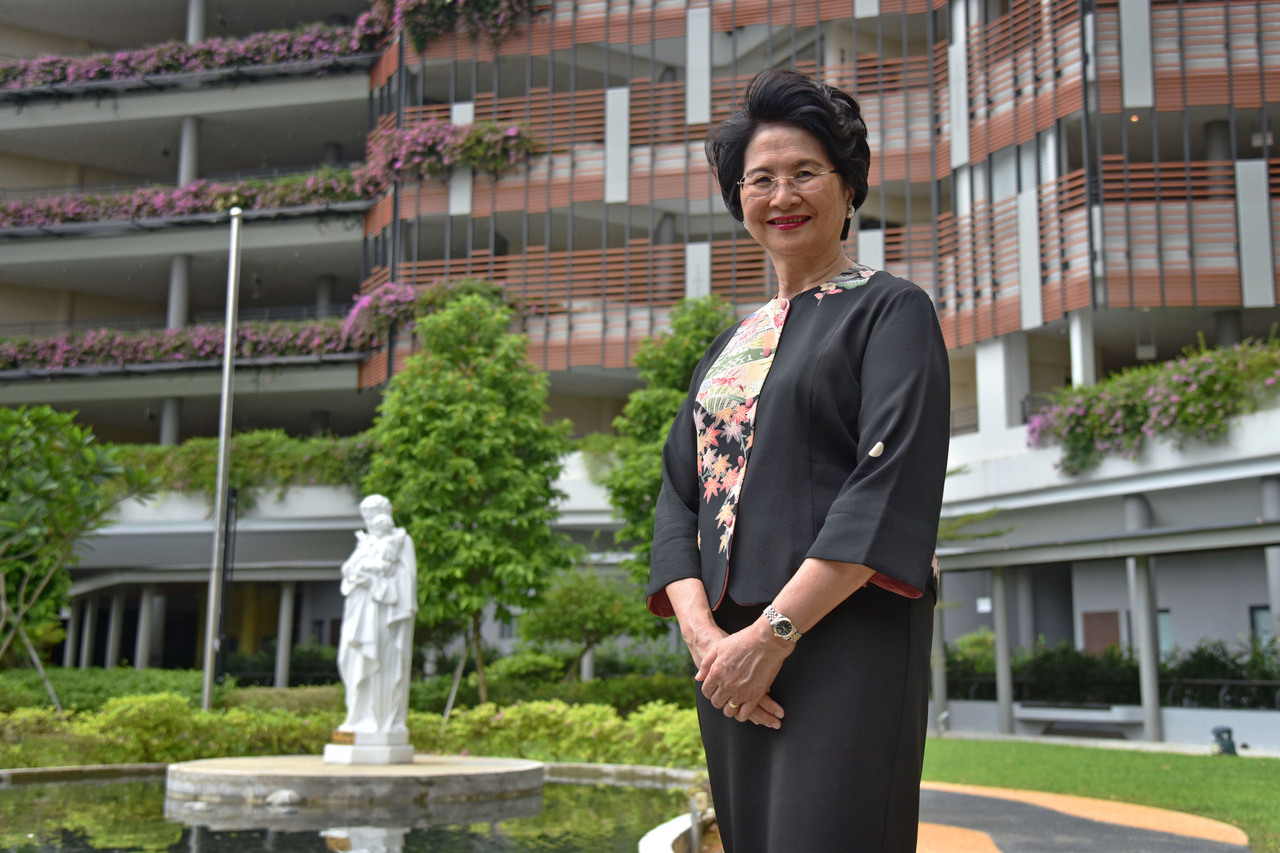Pioneer of palliative care, Prof Cynthia Goh, dies of pancreatic cancer at age 72
Sign up now: Get ST's newsletters delivered to your inbox

Professor Cynthia Goh was one of the trailblazers in setting up hospice care and introducing palliative care in Singapore.
PHOTO: ST FILE
Yeo Shu Hui
Follow topic:
SINGAPORE - Well-known palliative care pioneer, Professor Cynthia Goh, died of pancreatic cancer on Sunday night (Feb 13) at the age of 72 – but not before having a big say on how to spend her remaining days once she knew the end was near.
Her approach exemplified what she had always championed and done – to help the dying live out their days as comfortably and with as much dignity as possible.
“When she discovered that the cancer had come back and she had not much longer to live, we quickly went to Ireland to see the family. We had two weeks of wonderful time,” said her husband, Dr Goh Hak-Su, 73.
On her last days, he added: “She had the best palliative care from her friends and colleagues at home. She was able to die at home, which she wanted.”
Dr Goh said she was first diagnosed with pancreatic cancer in November 2019. She underwent surgery and chemotherapy till May 2020.
In August last year, a lump was found in her lung and she had surgery to remove it. In November, it was found that the cancer had spread to other parts of her body.
Prof Goh, who was one of the trailblazers in setting up hospice care and introducing palliative care in Singapore, started out as a volunteer at St Joseph’s Home in 1986.
She helped to set up palliative care services at Singapore General Hospital and National Cancer Centre Singapore in 1999, and was founding president of HCA Hospice Care, the country’s largest home hospice care provider.
In an interview with The Straits Times in 2019, Prof Goh said she recognised a need to improve the quality of life for the terminally ill, and set up hospices and palliative care in Singapore, despite being told that there was no need for such services in the 1980s.
She was born on Nov 21, 1949, in Hong Kong to a family of doctors. She attended medical school St Bartholomew’s Hospital, University of London, where she met her future husband, Dr Goh, in 1969.
Recalling their earlier days in London, Dr Goh, who is a pioneer in colorectal surgery here, said: “We were both young and idealistic. We take up medicine because we want to do what medicine should be, not to make money, but to service people, to help people.”
They married in 1974 and became parents to a daughter and a son. The family moved to Singapore in 1981.
The son, who is a 44-year-old doctor, currently resides in Dublin, Ireland, with two daughters, aged five and eight.
Throughout Prof Goh’s career, she also held various professional appointments and committee memberships in medical committees, such as chairing the Asia Pacific Hospice Palliative Care Network (APHN) since 2009 and moving to the advisory chair position last year.
Her death has drawn tributes from those who knew her.
Mr Giam Cheong Leong, executive director of APHN, said: “Dr Goh will be dearly missed but her light shall continue to shine and the APHN will hold her torch and pass it on to continue our mission of ensuring equity in access to hospice and palliative care in the region.
“She is a woman of strength, leader with heart and a legend in palliative care.”
Professor Eric Finkelstein, executive director for the Lien Centre for Palliative Care at Duke-NUS Medical School, said he is grateful for her guidance and support.
“Her dedication and compassion provided comfort to countless patients in their final moments and her energy and drive have transformed the palliative care sector in Singapore and internationally.”
Professor William Hwang, medical director at the National Cancer Centre Singapore, said the staff are deeply saddened by the passing of Prof Goh, who held the emeritus consultant position at the division of supportive and palliative care.
“By sharing her wealth of knowledge and expertise, she inspired and mentored a generation of palliative healthcare professionals who will continue the legacy of her important work,” he added.
He noted: “Her passion and dedication positively impacted the lives of so many patients and their families. She was a warm, empathetic and caring doctor, who took a personal interest in ensuring that patients’ needs and wishes were met.”
Mr Sunny Wee, 72, a public affair adviser who has known Prof Goh for 18 years, said he last communicated with her between Jan 31 and Feb 1, when he sent her a Chinese New Year greeting.
“She said she was only given weeks to live. I think she was quite brave… she said she was thankful to God for enabling her to go through Chinese New Year for the last time with her family,” he added.
Mr Wee also told The Straits Times that in a conversation he had with her a few years ago, he asked her how she carried the emotional strain of seeing people on their last journey.
“She said that as a doctor, she can’t show her emotion in front of the patient. But in her quieter moments, in a room where she can find privacy, she will let go of her emotions and cry.
“She said that she is also a human being and journeying with the patient over a period of time, you sort of get to know them.”
Dr Goh said he will miss his partner.
“I will miss everything about her, we have known each other for more than 50 years... I will miss the companionship. We are able to talk to each other. We understand each other.
“She was very cultured and used to play the piano very well... we also like to watch plays. We have a lot in common,” he added.

